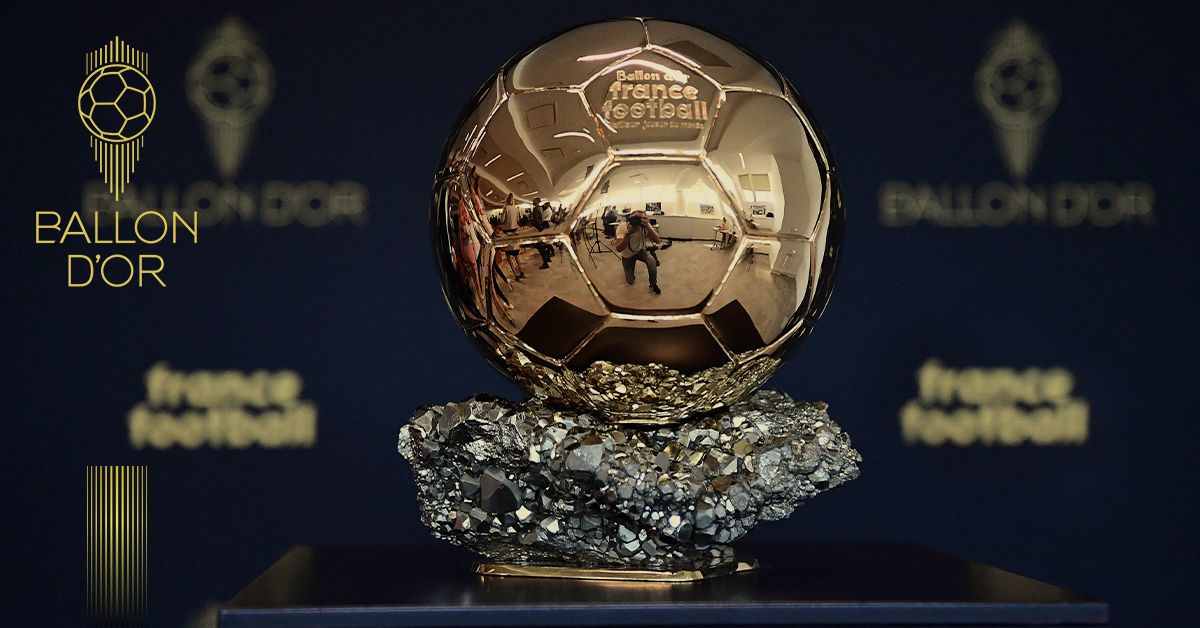The Ballon d'Or: A Prestigious Award for the Best Footballer in the World
The Ballon d'Or is an annual award presented to the best football player in the world. It is considered one of the most prestigious individual awards in football and is highly coveted by players around the globe.

I. Introduction
The Ballon d'Or is an annual award presented to the best football player in the world. It is considered one of the most prestigious individual awards in football and is highly coveted by players around the globe. The award is organized by the French football magazine, France Football, and has been awarded since 1956. Initially, it was open only to players from Europe, but in 1995, it was expanded to include all players from around the world who play for clubs in Europe. In 2007, the award was merged with the FIFA World Player of the Year award, but the two awards were separated again in 2016.
Over the years, the Ballon d'Or has been won by some of the greatest footballers of all time, including Lionel Messi, Cristiano Ronaldo, Michel Platini, and Johan Cruyff, among others. The award has undergone several changes in its history, including changes in the voting format and eligibility criteria. In this article, we will explore the history, significance, and evolution of the Ballon d'Or award.
II. The Criteria for Winning the Ballon d'Or
The Ballon d'Or is awarded annually to the best football player in the world. The criteria for winning the award have evolved over the years, but generally, three factors have been considered: performance in domestic and international competitions, technical skill and ability, and team success.
France Football, a highly respected football publication, come up each year with a shortlist of contenders for both the men and women Ballon d’Or award. The "diverse international jury" of voters is made up of national team coaches and captains from a selection of FIFA's 209 national associations, in addition to "specialist journalists."
The players on each jury member’s list are awarded points. Whoever gets the most points is the winner of the Ballon d’Or. If two or more players are tied on points, the number of first-place votes they received is used as a tie-breaker. The three main criteria when the jury member is making their decisions are: Individual and collective performance from the previous season, a player’s class and their career.
Until 2022 the award was offered for the performances during a calendar year, while starting with 2023 a change to the regulations will mean that the award will be offered for a footballing season.
III. Past Winners of the Ballon d'Or
The Ballon d'Or has been awarded since 1956, with some of the most famous and successful footballers in history winning the prestigious award. One of the most successful players to have won the award is Lionel Messi, who has won the award a record 7 times. Other notable winners include Cristiano Ronaldo, Michel Platini, Johan Cruyff, Marco van Basten, or Diego Maradona:
|
Player |
Nationality |
Winner |
Second place |
Third place |
|
Lionel Messi |
Argentina |
7 (2009, 2010, 2011, 2012, 2015, 2019, 2021) |
5 (2008, 2013, 2014, 2016, 2017) |
1 (2007) |
|
Cristiano Ronaldo |
Portugal |
5 (2008, 2013, 2014, 2016, 2017) |
6 (2007, 2009, 2011, 2012, 2015, 2018) |
1 (2019) |
|
Michel Platini |
France |
3 (1983, 1984, 1985) |
— |
2 (1977, 1980) |
|
Johan Cruyff |
Netherlands |
3 (1971, 1973, 1974) |
— |
1 (1975) |
|
Marco van Basten |
Netherlands |
3 (1988, 1989, 1992) |
— |
— |
|
Franz Beckenbauer |
West Germany |
2 (1972, 1976) |
2 (1974, 1975) |
1 (1966) |
|
Ronaldo |
Brazil |
2 (1997, 2002) |
1 (1996) |
1 (1998) |
|
Alfredo Di Stéfano |
Spain |
2 (1957, 1959) |
1 (1956) |
— |
|
Kevin Keegan |
England |
2 (1978, 1979) |
1 (1977) |
— |
|
Karl-Heinz Rummenigge |
West Germany |
2 (1980, 1981) |
1 (1979) |
— |
One common trait among past Ballon d'Or winners is their exceptional skill and ability on the pitch. Many of the winners have been considered the best players of their generation and have left a lasting impact on the sport of football. The winner of the 2022 Ballon d'Or was Real Madrid's striker Karim Benzema.
However, there have also been controversies surrounding some Ballon d'Or winners. In 2010, Lionel Messi won the award over Andres Iniesta, who had helped lead Spain to victory in the World Cup. Many critics argued that Iniesta deserved the award more than Messi, who had not won any major international tournaments that year. Similarly, in 2018, Luka Modric won the award over Cristiano Ronaldo, despite Ronaldo's impressive performances for Real Madrid and Portugal. Many argued that Ronaldo was unfairly overlooked for the award, and that Modric's win was a result of his success with the Croatian national team. In 2020, due to the Covid-19 Pandemic, the award was not offered to any player.
The full list of Ballon d'Or winners can be found here. Overall, the Ballon d'Or has recognized some of the greatest footballers in history, but has also been the subject of debate and controversy over the years.
IV. Impact and Significance
The Ballon d'Or has a significant impact on the world of football. It recognizes the best player of the year. The Ballon d'Or is also a reflection of football trends and culture. It reflects the style of play that is currently in vogue and the importance of specific positions on the pitch. For example, in recent years, the award has been dominated by attacking players such as Lionel Messi and Cristiano Ronaldo, highlighting the importance of scoring goals and creating opportunities.
Winning the Ballon d'Or can also have a significant impact on a player's legacy. It can cement their place in football history and enhance their reputation among fans and peers. The award is often seen as the pinnacle of individual achievement in football, and winning it multiple times can elevate a player's status to that of a legend.
In addition to individual legacies, the Ballon d'Or can also impact team legacies. A team with a Ballon d'Or winner can be seen as having a successful season, and the award can contribute to a team's overall reputation and success.
V. Recent Developments and Changes
In 2010, the Ballon d'Or and the FIFA World Player of the Year award merged to create the FIFA Ballon d'Or. This merger continued until 2015 when the two awards split again. The Ballon d'Or reverted to being solely a France Football award, while FIFA reintroduced the FIFA Best Men's Player award.
Another significant development was the introduction of the Women's Ballon d'Or in 2018. This award recognized the best female football player in the world and marked an important step towards gender equality in football. The criteria for winning the Women's Ballon d'Or are the same as the men's award, including performance in domestic and international competitions, technical skill and ability, and team success. The first winner of the Women's Ballon d'Or was Ada Hegerberg, a Norwegian forward who played for Lyon. However, her moment was marred by controversy when the ceremony's host, Martin Solveig, asked her if she could twerk on stage. The winner of the last two Women's Ballon d'Or is Alexia Putellas.
The Ballon d'Or has also faced criticism for being Eurocentric and overlooking players from other parts of the world. In 2020, the Ballon d'Or was canceled due to the disruption caused by the COVID-19 pandemic, and this allowed for a review of the award's criteria and format. France Football announced that the Ballon d'Or would focus more on the individual performances of players and would include a women's goalkeeper award.
The aspects that could improve the award would be:
- A more consistent schedule for the award. Until this year, it was offered for a calendar year, not for a footballing season.
- Stronger lists of candidates
- A more demanding voting list
- Clearer rules
VI. Conclusion
In conclusion, the Ballon d'Or has established itself as the most prestigious individual award in football, recognizing the best player in the world. The criteria for winning the award include a combination of individual skill and team success, as demonstrated by past winners. While the award has had some controversies, it remains a symbol of recognition for individual talent in a team sport. Recent developments, such as the merger with FIFA World Player of the Year award and the introduction of the Women's Ballon d'Or, have made the award more inclusive and reflective of the global football community. As football continues to evolve and grow, the Ballon d'Or will likely continue to play a significant role in recognizing the sport's top talent and shaping its culture.

